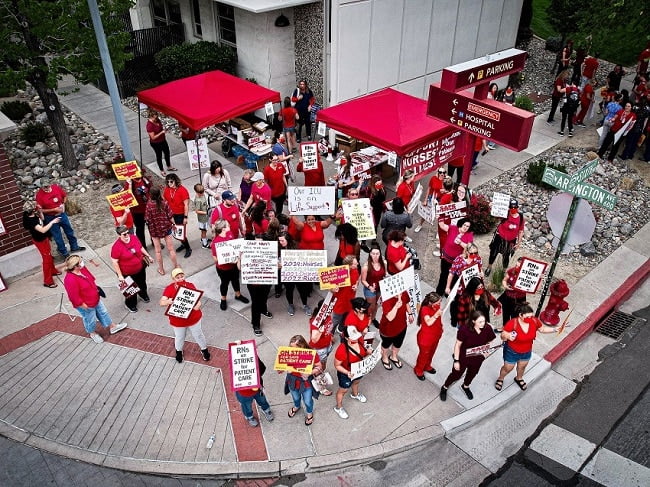The so-called “winter of discontent” continues well into 2023, with ongoing strikes throughout the NHS unlikely to be resolved any time soon. In the case of nurses, the strikes have arguably been a long time coming, after years of delayed or nominal pay increases and the increased pressure that has been placed on the NHS through Covid-19 and beyond.
In fact, nurses are pledging potentially tougher strike action unless a resolution is achieved. But what are the nurses’ demands, and what impact are the strikes having on the NHS?
What are the Nurses Demanding?
The Royal College of Nurses has demanded a 17.6% pay rise, which has been derided by some ministers as being far too high given the current economic climate.
However, it’s the same economic climate that’s informing the union’s position, with inflation continuing to run above 10% having peaked at 11.1% back in November. So, nurses are requesting an above-inflation pay rise as a starting point, while also factoring in delayed and nominal pay increases that have occurred during the last five years.
It should also be noted that the figure of 17.6% is an entry point into negotiations, and it’s believed that nurses would accept a reasonable offer below this threshold.
So far, the English government has offered a pay increase of 5%, which is far below the current rate of inflation and would effectively serve as a pay cut in real terms. Scottish Health Secretary Humza Yousaf has suggested that the SNP may award a pay increase as high as 7.5%, but even this would fall far short of the current demands and expectations.
PM Rishi Sunak has also discussed the prospect of sweetening any pay offer with a ‘one-off’ hardship payment to help account for the current cost-of-living crisis.
While this is at least partially positive as it suggests that the government are willing to enter into dialogue with union representatives, it’s unlikely to be warmly received and may well be perceived as an attempt to deny nurses fair and equal pay.
What’s the Impact on Patients?
Ultimately, these facts suggest that no resolution is imminent, with the situation likely to get worse if nurses do plan continued and more extensive strikes.
But what impact will this have on patients? Well, a record high of almost 7.21 million people were currently waiting for treatment in the NHS in October 2022, while 2.91 million had waited more than 18 weeks for treatment according to the same set of statistics.
Cancer patients could also come to harm in the near term, both from a diagnostic perspective and the delivery of swift treatment.
In addition to potentially increasing the risk posed to vulnerable patients, the strikes could also see the NHS hit with more medical negligence claims.
As of January 2020, it was believed that the NHS already faced paying out £4.3 billion in outstanding clinical negligence fees, so increasing this burden further will place a further strain on the cash-strapped national health service.
These facts make it all the more important that the government comes to the table and makes a reasonable offer to nurses, one that factors in the crippling rate of inflation on these shores.





